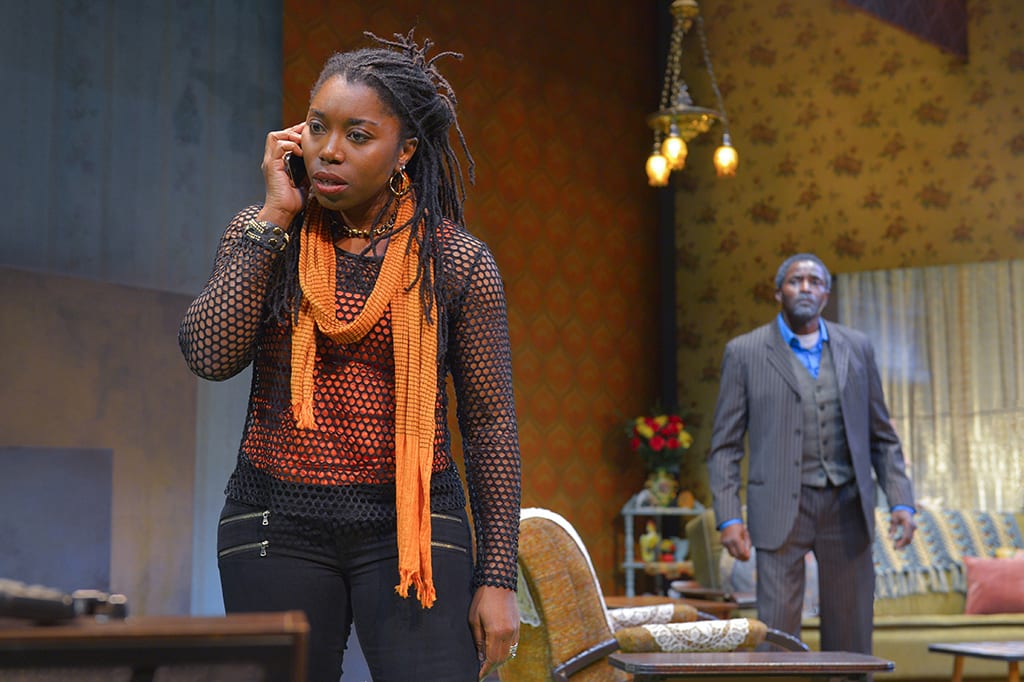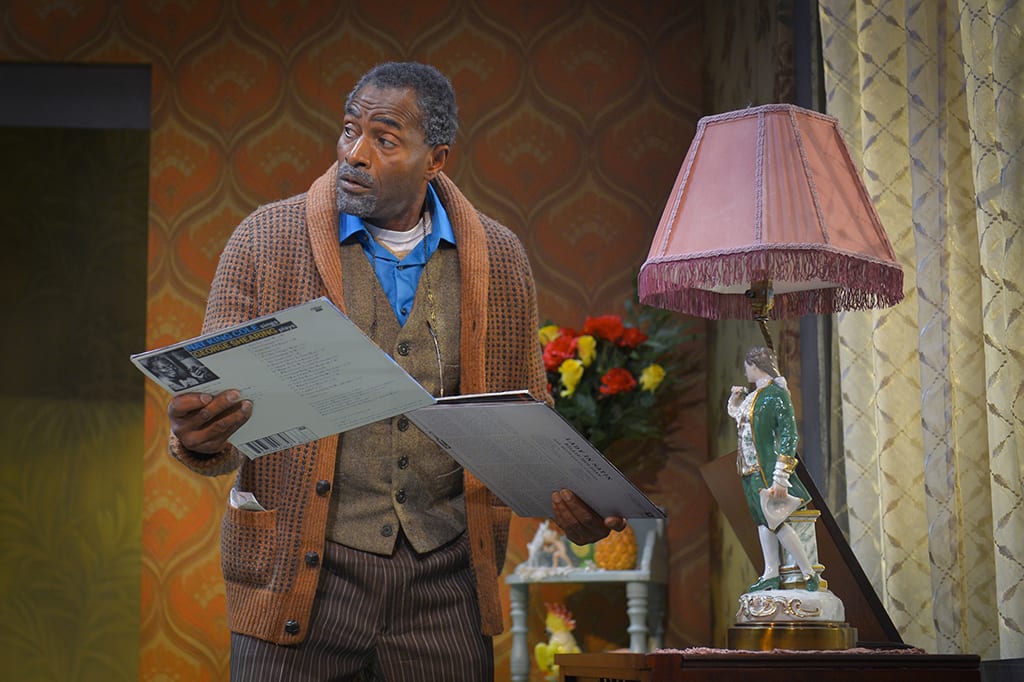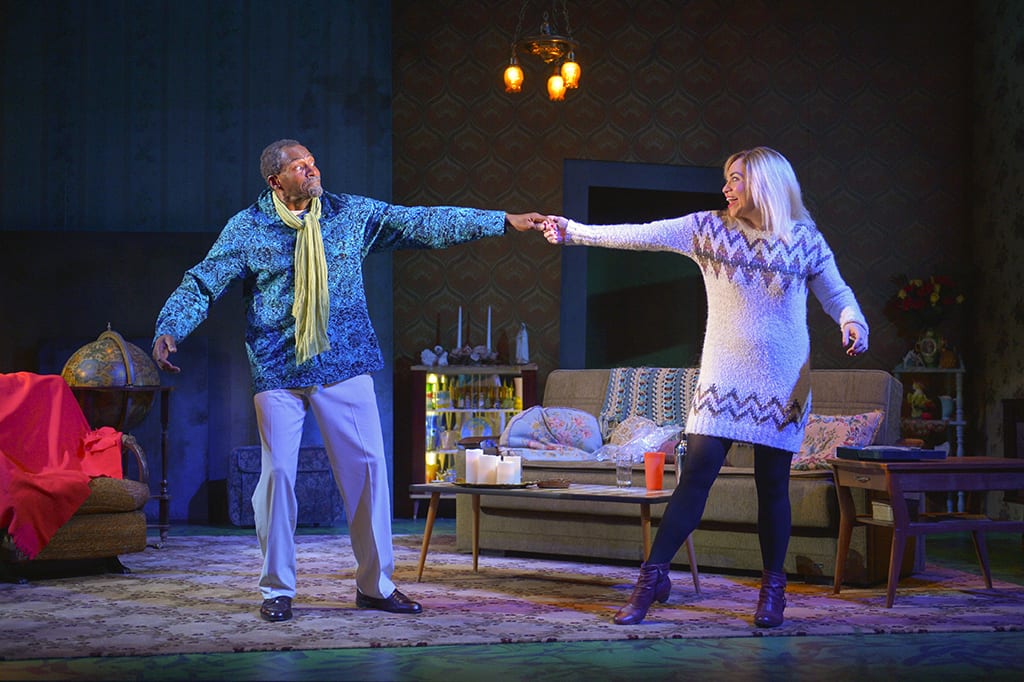After runs in London and Baltimore, Let There Be Love makes its West Coast debut at the American Conservatory Theatre. The play centers around the misanthropic Alfred who, having alienated friends and family, seems happy to live out his illness-ridden days in the solitude of his West London house. Alfred ends up developing an unlikely friendship with his polish caretaker Maria and, as the pair grows more intimate, the play touches upon issues of immigration, medicare and euthanasia that so badly need discussing in England as well as in America.
Alfred finds solace in the music of Nat King Cole and relieves the pain from his illness with the occasional joint; along with his striped kaki suit, he seems to be straight out of a Sam Selvon novel. Indeed, Lydia Tanji’s costumes are simple but efficient and Daniel Ostling’s carefully crafted set believably recreates the atmosphere of a West Indian home in London. The action unfolds against the backdrop of bleak concrete building blocks that spring up from the rear of the stage and provide a convincing justification for Alfred’s voluntary confinement.
In fact, all the characters have a conflicting relationship with England: Maria punctuates her revisions for the English Citizenship test with loud bursts of ‘Anarchy in the UK’ on the gramophone, and Alfred scorns Maria for her Polish accent while being painfully conscious of the hardships emigration entails. The playwright himself traced back his Ghanaian lineage through the slave trade and changed his name, aged 19, from Ian Roberts to Kwame Kwei-Armah. Nevertheless, the play invites us to overlook cultural differences and, in the microcosm of Alfred’s front room, the three characters manage to instaurate the sort of functional multiculturalism that America and England both find so hard to grow into. A smile came onto my face when Maria punningly says that she is ‘polishing off’ Alfred’s trademark-West Indian gramophone.
Let There Be Love is funny and easy to watch; the sort of ‘feel good’ if oversimplifying play that posits healthy communication as the therapeutic solution to the ills of our society and, in the short space of two hours, proves it by example. The plot unfolds in a predictable manner and the outcome was not surprising to me. Nevertheless, Carl Lumbly and Greta Wohlrabe’s outstanding acting make for an entertaining evening.



